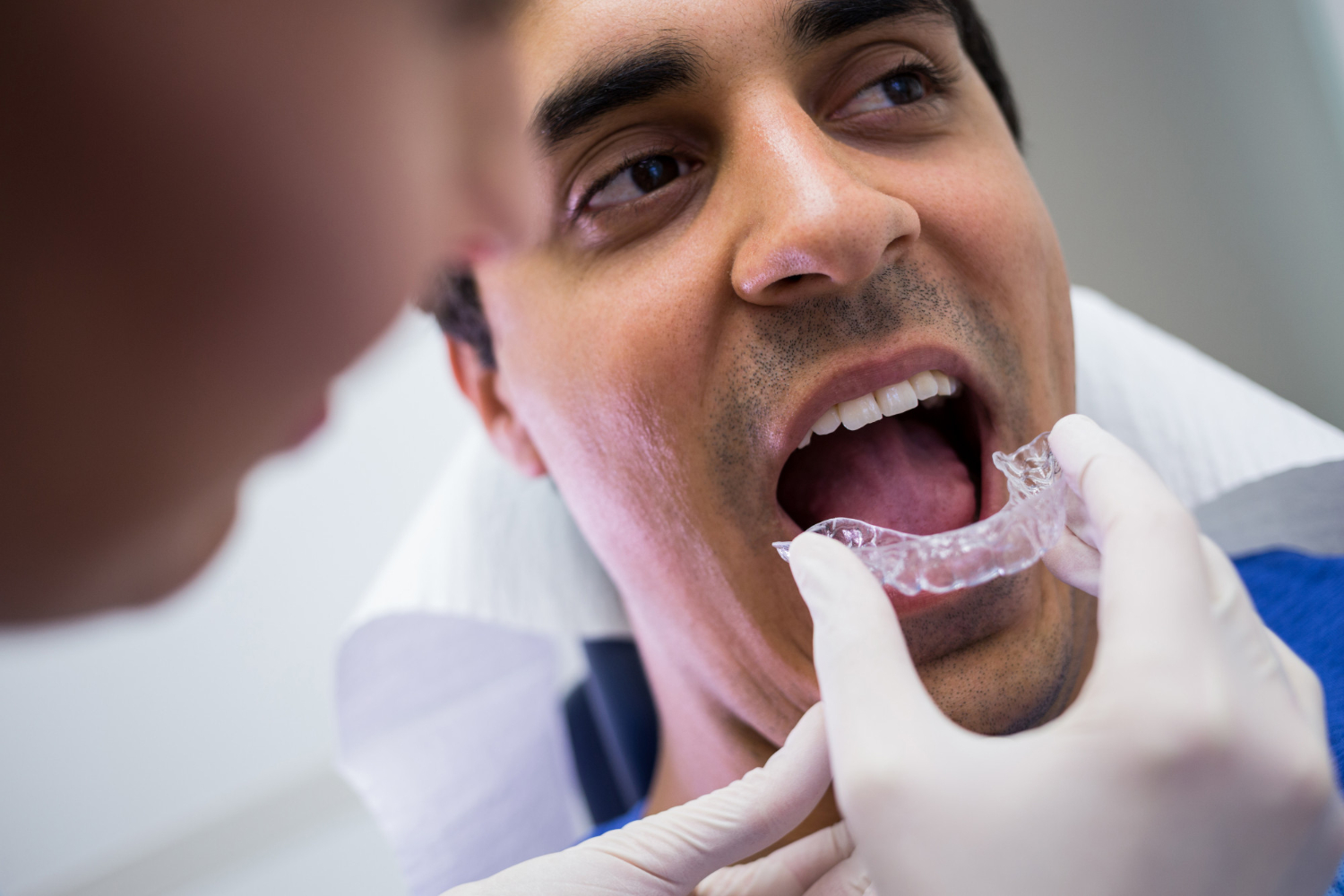Dental night guards are essential oral appliances designed to protect your teeth from the damaging effects of teeth grinding (bruxism) or clenching during sleep. Keeping your night guard clean is crucial not only for its longevity but also for your oral health. Regular cleaning helps prevent the buildup of bacteria, plaque, and unpleasant odors. In this comprehensive guide, we’ll walk you through the steps on how to effectively clean your dental night guard.
Materials Needed:
- Soft Toothbrush:
- Choose a toothbrush with soft bristles to avoid scratching or damaging the night guard’s surface.
- Mild Soap or Denture Cleaner:
- Use a mild, non-abrasive soap or a denture cleaner specifically designed for oral appliances. Avoid using harsh chemicals or toothpaste, as they can damage the night guard.
- Water:
- Warm water is ideal for rinsing your night guard and removing debris.
- Storage Case:
- Store your night guard in a clean, dry case when not in use to prevent contamination.
- White Vinegar:
- White vinegar can be used for occasional deep cleaning and odor removal.
Cleaning Steps:
Rinse Immediately After Use:
As soon as you wake up, remove your night guard and rinse it under running water to remove saliva and debris.
Use a Soft Toothbrush:
Gently brush the night guard with a soft toothbrush and mild soap. Pay attention to all surfaces, including the grooves and crevices.
Avoid Hot Water:
Avoid using hot water, as it can deform the night guard. Stick to lukewarm or cool water for rinsing and cleaning.
Deep Cleaning with White Vinegar:
For more thorough cleaning, soak your night guard in a mixture of equal parts water and white vinegar for 15-20 minutes. Rinse thoroughly afterward.
Avoid Harsh Chemicals:
Do not use bleach, alcohol, or harsh chemicals, as they can damage the night guard material and pose a risk to your health.
Dry Completely:
After cleaning, allow your night guard to air-dry completely before storing it. Avoid using towels or tissues, as they can harbor bacteria.
Clean Your Storage Case:
Regularly clean your night guard storage case with mild soap and water to prevent the growth of bacteria.
Regular Inspection:
Periodically inspect your night guard for signs of wear, tear, or damage. If you notice any issues, consult your dentist for guidance on repair or replacement.
Conclusion:
Maintaining a clean dental night guard is essential for both its effectiveness and your oral hygiene. By following these simple yet effective cleaning steps, you can ensure that your night guard remains in good condition, providing optimal protection for your teeth. Always adhere to the manufacturer’s care instructions, and consult your dentist if you have any concerns about the maintenance of your night guard. Remember, a clean night guard contributes to a healthier smile and a more comfortable night’s sleep.
